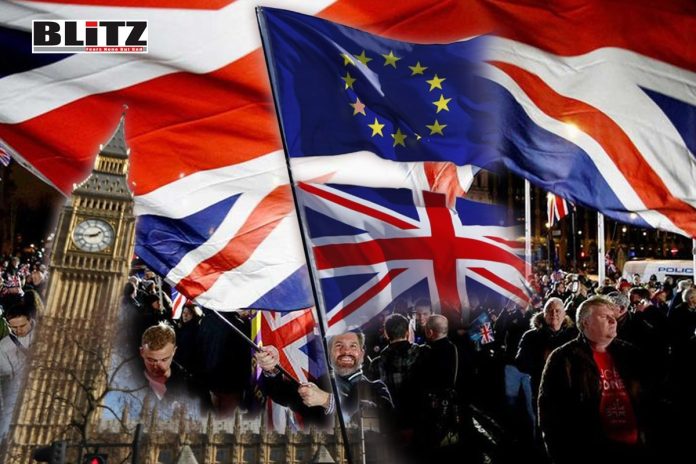The year 2024 has been marked by a flurry of elections across the globe, each carrying significant weight in shaping the future trajectory of their respective countries and, to some extent, the world at large. Among these pivotal elections, Britain’s upcoming general election stands out as a crucial turning point, especially in the context of post-Brexit recovery efforts.
The aftermath of Brexit, compounded by the challenges posed by the COVID-19 pandemic and geopolitical tensions such as the Russia-Ukraine conflict, has left the United Kingdom grappling with economic instability and political turmoil. Against this backdrop, the forthcoming general election holds immense significance in determining the course of the nation’s recovery.
As the Labour Party emerges as the front-runner with a substantial lead in the polls, the prospect of a change in government raises hopes for a fresh approach to addressing the country’s pressing issues. However, the road ahead remains fraught with challenges, given the deep-rooted political dysfunction and the enduring legacy of Brexit.
The decision to leave the European Union, touted by Brexiteers as a pathway to renewed sovereignty and economic prosperity, has instead led to a series of setbacks for the UK economy. Plummeting exports, sluggish growth, diminished productivity, and strained public finances underscore the urgent need to confront the catastrophic consequences of Brexit.
Yet, political discourse in Britain has been marked by a reluctance to address Brexit head-on, reflecting a combination of voter fatigue and deliberate efforts to stifle debate. However, the gravity of the situation demands a candid reassessment of the country’s trajectory and a concerted effort to chart a course towards recovery.
Drawing parallels to the iconic scene from “The Italian Job”, where a bus laden with gold teeters on the edge of a cliff, the UK finds itself at a critical juncture, balancing precariously between its past aspirations and the harsh realities of its present predicament. The promises of Brexit, once steeped in optimism, now ring hollow in the face of tangible hardships.
In seeking a way forward, British policymakers must confront the stark realities of their situation and prioritize efforts to mend fractured relationships, particularly with the European Union. While rejoining the EU may seem improbable in the near term, collaboration on key issues such as defense, trade, and migration can pave the way for mutual benefit.
The next government, whether led by Labour or the Conservative Party, must resist the allure of populist rhetoric and instead focus on pragmatic solutions that address the underlying challenges facing the nation. From aligning regulatory standards to tackling the root causes of mass immigration, decisive action is imperative to steer Britain towards a path of stability and prosperity.
In the eyes of the international community, Britain’s upcoming election carries profound implications not only for its own future but also for its role on the global stage. It falls upon the elected leadership to restore faith in Britain’s governance and reassert its standing in the international arena, forging a path towards economic renewal, security, and self-respect. As the world watches with bated breath, the outcome of Britain’s general election holds the promise of a new beginning in its post-Brexit journey.
Beyond the immediate implications for Britain, the outcome of the general election is poised to reverberate across the global political landscape. With Brexit serving as a bellwether for populist movements worldwide, the manner in which Britain navigates its post-Brexit challenges will undoubtedly shape international perceptions of nationalism, sovereignty, and the future of liberal democracy.
For the European Union, Britain’s departure has not only strained economic ties but also raised questions about the cohesion and efficacy of the bloc itself. As Britain grapples with the consequences of its decision, EU leaders are confronted with the imperative to address underlying grievances and foster a renewed sense of unity among member states.
Moreover, the implications of Britain’s general election extend far beyond the confines of Europe, with ripple effects felt across the Atlantic and beyond. The United States, in particular, is closely watching developments in Britain, as it navigates its own political landscape and contends with the legacy of the Trump era.
In this interconnected global landscape, the outcome of Britain’s general election holds far-reaching implications for international trade, diplomacy, and security. As Britain seeks to redefine its role on the world stage, the choices made in the upcoming election will shape its relationships with key allies and adversaries alike.
Amidst the uncertainty and upheaval of the post-Brexit era, one thing remains clear: Britain’s general election is not just a domestic affair but a pivotal moment with implications that extend far beyond its borders. As voters head to the polls, the stakes could not be higher, and the choices made will resonate for years to come, shaping the future trajectory of Britain and its place in the world.




